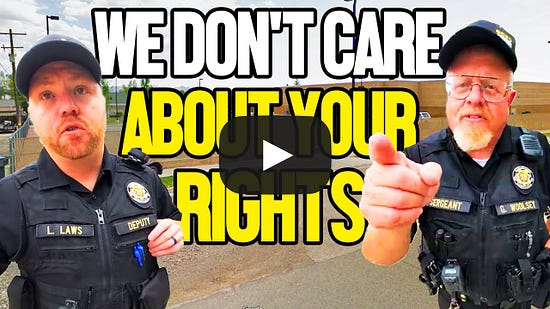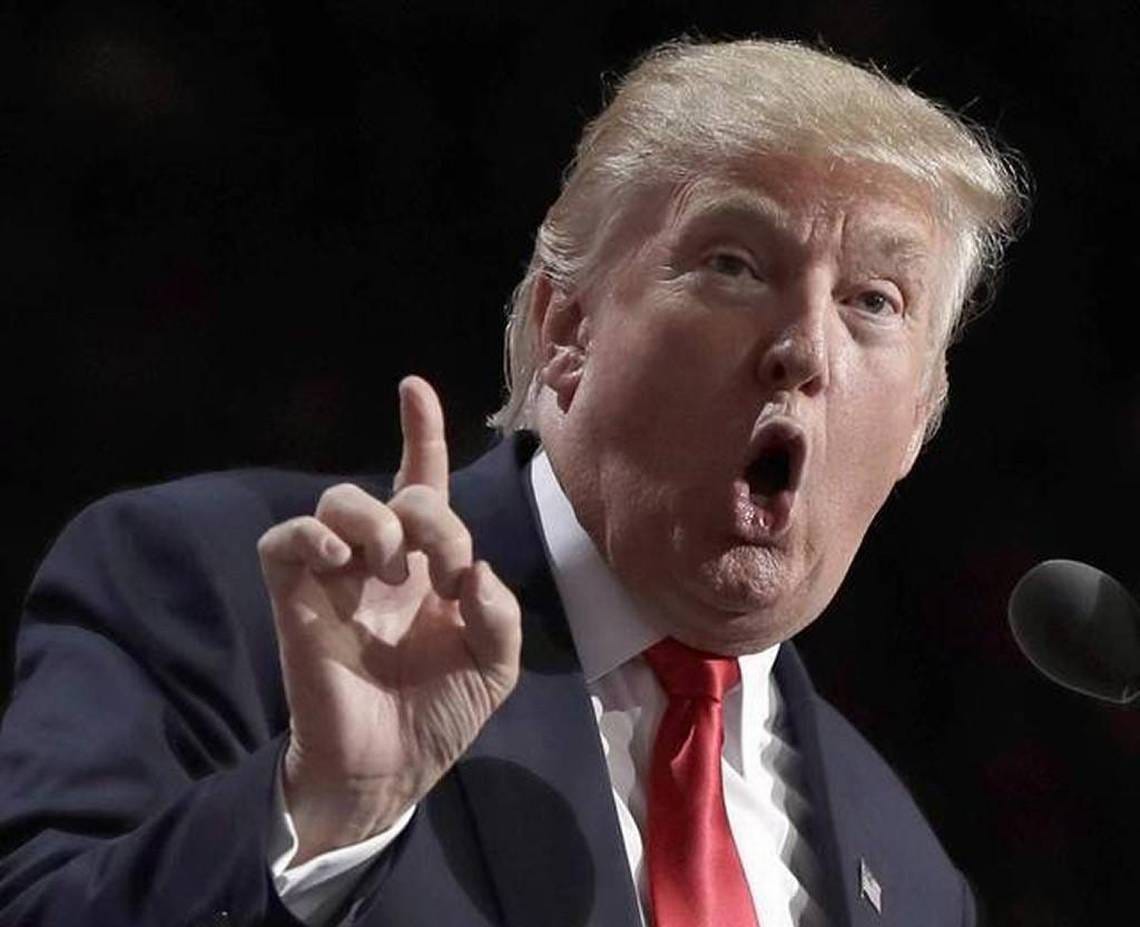|
Why activists should defend free speech – even by our enemies
The instinct to punish disagreement is in all of us. The gagging of animal rights activists in Utah shows why we have to work hard to resist it.
We live in an era of censorship. Laws have been passed banning the use of the words “meat” and “milk” for plant-based alternative products. Scholars have been shouted down for expressing polite, dissenting views on the subject of offensive Halloween costumes. And a data scientist named David Shor, at a progressive think tank, was fired for tweeting research about the effectiveness of nonviolent protest. (The tweet, which was posted as protests over George Floyd’s murder spread across the nation, was deemed offensive to people of color.)
The most extreme form of censorship, however, does not take the form of public outcry. It happens when the government punishes speakers, on the grounds that speech can cause harm.
That was the mentality that led officers in Beaver County, Utah to harass, intimidate, and criminally charge peaceful animal rights activists on July 24 for expressing views that were, as one officer put it, “salt into the wounds” of the local community. They believed animal rights activists were hurting people with their speech. But, as the YouTube platform Audit the Audit explains, those actions by officers were not just wrong. They were unconstitutional.

On Friday, in the wake of a lawsuit filed by animal advocates against Beaver County authorities, a Utah judge granted our motion to move our upcoming trial to a different venue. It was the first and relatively minor victory for us, in our efforts to show that the prosecution of animal rights activists in Utah is ultimately about speech. And, as I argued last week, the court’s rulings in this case will set a precedent for the right to free expression for us all, not just the two defendants at trial. After all, if activists such as Paul, Curtis, and I can be charged or imprisoned merely for speaking critically about Smithfield and Costco, then other corporations will pursue their critics in court, as well. The result will not just be an impoverished public debate, but the unraveling of our most basic civil liberties, in the face of corporate power.
Many of our supporters have thus rightfully cheered the filing of the suit, and our small victory in changing venue. The legal system, it seems, is finally acknowledging that it’s not right to threaten, intimidate, or prosecute someone for expressing a different view.
But there is an important point that has been missed by many on “our side.” The fight for free expression is not just unfolding in a Utah courtroom, between animal rights advocates and agribusiness giants; it’s unfolding in our own communities, between Democrats and Republicans, liberals and conservatives, and people of all walks of life. This is because the exact methods that are being used by Beaver authorities to prosecute animal rights activists in Utah — that dangerous people should not be allowed to speak — are spreading through the very communities and movements that used to be bastions for free thought and expression.
To truly challenge the efforts by Smithfield to crush those who criticize their abuses, in turn, we have to challenge the instinct within each of us to punish those we disagree with.
Let me use, as an example, what many might see as a difficult case for free expression: Donald Trump’s words in the wake of the January 6, 2021 riots. I, like many, was shocked by the riot that unfolded at the Capitol on that day. When major social media companies such as Twitter permanently banned Trump from their platforms, many cheered — including me. “He got what he deserved,” we thought.
But were we right? When I looked more deeply at this case, I started seeing major cracks in the justifications.
For one, the story being told about Trump was biased and incomplete. The two tweets that Trump was banned for, as explained in Twitter’s bizarre statement regarding its actions, did not seem very dangerous, on their face:
On January 8, 2021, President Donald J. Trump Tweeted:
“The 75,000,000 great American Patriots who voted for me, AMERICA FIRST, and MAKE AMERICA GREAT AGAIN, will have a GIANT VOICE long into the future. They will not be disrespected or treated unfairly in any way, shape or form!!!”
Shortly thereafter, the President Tweeted:
“To all of those who have asked, I will not be going to the Inauguration on January 20th.”
That’s it. A tweet that the people who voted for him would not be disrespected. And a tweet that Trump was not going to Biden’s inauguration. This was described by Twitter as glorification of and incitement to violence.
Another crack formed when I saw that condemnation of Trump’s supposedly dangerous speech was not as unanimous as the media made it seem. For example, political leaders across the globe, including many progressives from non-European countries, condemned Twitter’s actions as an undemocratic exercise in corporate power.
But activists, progressives, and even mainstream media outlets in the United States mostly cheered on Twitter’s actions, and failed to even include key facts — e.g., the specific language of the supposedly “violent” tweets; or that world leaders were concerned about the ban — from their reporting on Twitter’s actions.
Why does this matter to me? Because the exact methods used by Twitter and Trump’s opponents to silence him have been used against animal rights. A biased and incomplete story. And a false unanimity. The officers who charged Curtis on July 24, for example, failed to discuss the misconduct of Smithfield that led to its business difficulties (including widespread consumer fraud, union busting, and even human slavery), or the effort by animal rights advocates to work with the local community. Instead, the animal rights activists were merely trying to hurt the people of Beaver. Their story was biased and incomplete.
The officers also made it seem as if everyone in the community was opposed to the animal rights message; they created a false unanimity. The many people who oppose Smithfield, including nearly 50% of a neighboring county in a recent ballot initiative that challenged new construction of Smithfield’s factory farms, were completely ignored.
The exact methods used to silence our adversaries such as Donald Trump, in short, were used against us in an even more powerful way. And to ensure that similar actions aren’t taken against animal rights activists, or other dissenters, we need to resist the temptation to use these methods against our adversaries.
What does that mean, specifically? Here are lessons I think we can try to take away from this analysis.
First, resist the urge to say that dangerous people should not be able to speak. Speech is not equal to violence, and efforts to control speech are too often used against the powerless on behalf of the powerful, and not vice versa. Establishing a precedent, that supposedly dangerous speech can be censored or punished, will hurt those who seek change more than those who are in power.
Second, when examining a specific policy decision — for example, banning someone from a social media platform — look at how that decision would look if it were applied to you, or one of your allies. Twitter’s creative use of its prohibition on violence might look good to us when applied to Trump. But it will look less good if applied to animal rights activists. This is not theoretical. A video I once posted of bottle feeding a baby goat, was taken down by Facebook as a violation of their terms of service, relating to “incitement to violence.” Apparently, while nursing the baby goat, I criticized animal agriculture, which some deemed an incitement to violence. Facebook agreed.
In the short term, our commitment to free expression probably won’t affect what happens to Paul and I in Utah. The institutions and culture won’t change in time for us to benefit from a cultural commitment to free expression. But over the long term, if we want to ensure that disagreement doesn’t lead to persecution, we need to take those principles seriously. That starts with welcoming disagreement in our own lives.
—
A few updates.
The judge in Utah will be ruling tomorrow regarding the materiality of certain key witnesses, including the CEO of Costco and the Chief Administrative Officer of Costco. These key witnesses are crucial to the defense we plan to bring. If we are denied the right to call them, we are almost certain to appeal.
While the trial has been delayed to October 3, as a result of the change in venue, my “trial party” will still happen this Friday. We’re avoiding the phrase “going away party,” as we want to set the intention that we will win at trial. But the party may be my last chance to hang out with you — and to share our plans for how I plan to continue organizing, with a new project called The Sanctuary Initiative, even if I’m in prison. Here’s the event page. Hope you can make it!
If you liked this post from The Simple Heart, why not share it?
